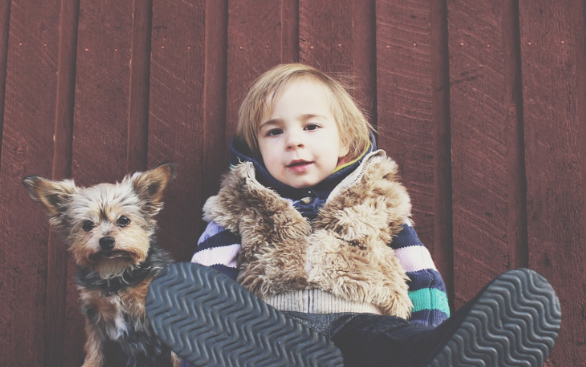
The idea of a family dog is such an attractive one, such a staple, that many families jump right on in without another thought. Or perhaps you already had a dog when you learned you were pregnant, and your child has never known a world where there’s not paws as well as feet treading the carpet of their home.
Either way, it’s a staple, a normal part of growing up. Most of us grew up with a pet of some sort, but there’s no denying that a dog is the ultimate. They’re man’s best friend, and it’s a bond that you want to allow your children to enjoy. Not to mention, there are huge benefits for kids who grow up with a dog in their life.
So everything is fine and dandy then, isn’t it? It’s the perfect mix, child and dog, going together like… two things that go together really, really well.
So why do so many families struggle? The sad reality is that they do; sometimes to the point of the dog having to be re-homed. What’s going wrong, the kink in a relationship that should be nothing but beneficial?
Playtime Is Confusing
When children are young, they have yet to learn how to handle a pet properly. What they see as harmless fun – such as rolling around on the floor with your dog, play-fighting – can be viewed very differently by the dog. They may take this as a sign of aggression, or not understand the line between where “play” begins and when it ends.
The result? A confused dog who doesn’t know the line between fun-fighting and just all-round fighting.
The best way of handling this is to keep your dog well-exercised, so they don’t go looking for a source of exertion. The best interactive toys for your dog will stimulate their minds as well as their bodies, giving them a thorough workout. Not only will this help them in terms of health (obesity is a real problem for modern dogs), but it will also tire them out. That means if your child decides to play-fight, the dog is already sated in terms of exercise and will go along with it for fun, rather than seeing it as a challenge.
Defensiveness
The above scenario sees child and dog happily engaging with one another, albeit with the occasional risky moment. When a dog becomes defensive of a child, however, that’s not necessarily a good thing.
Situations can arise where your dog sees your child exactly as you would like them to: as a member of the family, a friend, someone they are defensive of and form a strong bond with. Most of this time, this will be a harmless connection, but occasionally, it can trip into something else. The dog begins to see the child as under their protection and anyone – including their parents – are a threat to the child.
This situation can rapidly escalate. The only way to combat it is with thorough training; either for the first time or refreshers for a dog already trained. Talk to a professional to help overcome this issue and get the hierarchy of your home reestablished.


Speak Your Mind